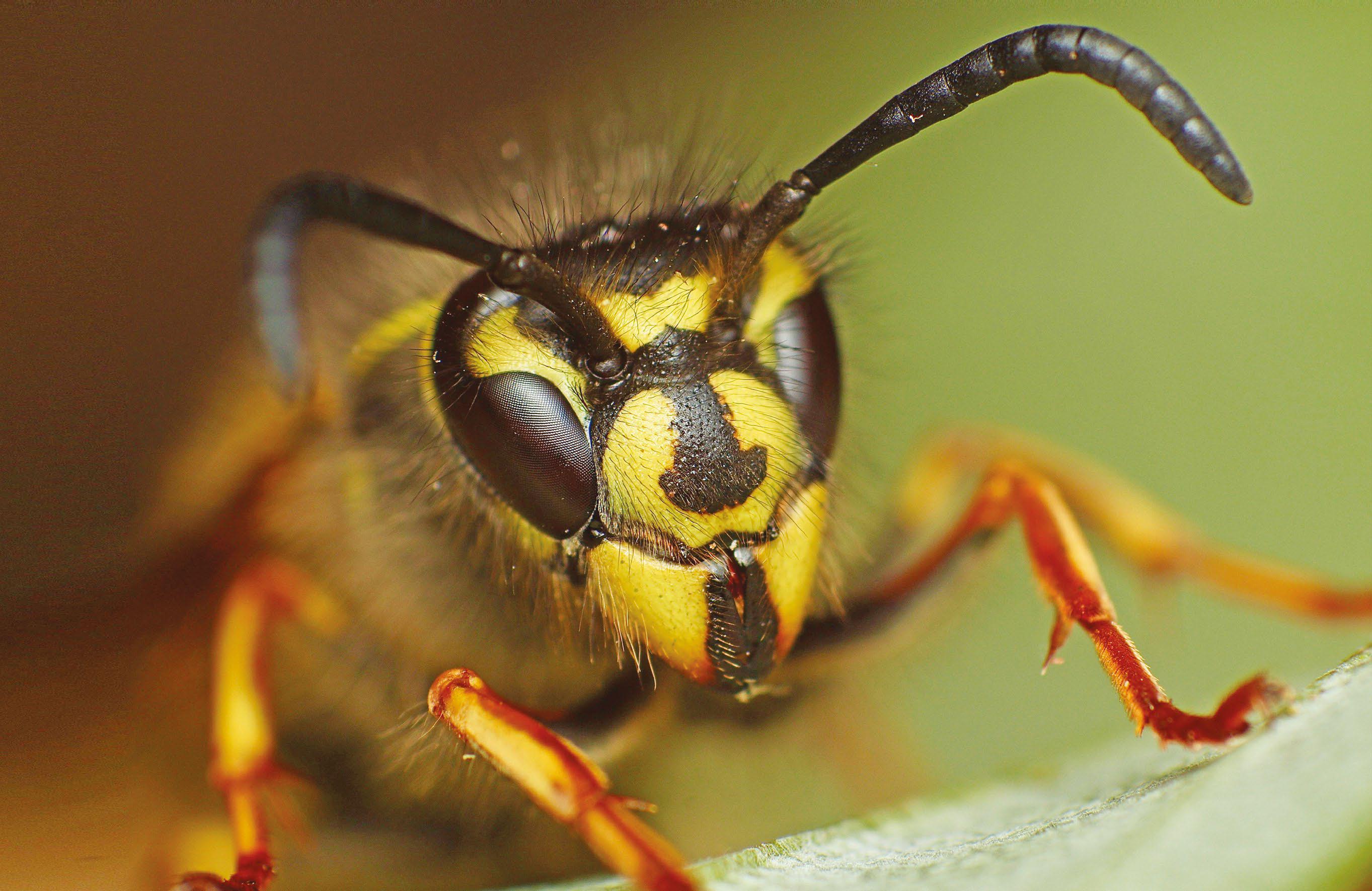Should people learn to love wasps?
The Week Junior Science+Nature UK
|Issue 65
Some people think that these pesky insects deserve to be treated more kindly.
-

Summer is the perfect season to have a picnic. Sitting on the grass with sandwiches, fruit and cake feels like an ideal way to spend the day. However, that joy can quickly be shattered by the arrival of a wasp. These annoying buzzy insects have a terrible reputation.
The same can’t be said for their honey-making relatives. Bees are seen by many as cute and cuddly, and humans are very keen to protect them. If someone spots a tired bee on the floor, they might give it a little bit of sugar and water to help it get moving again. While bees have developed a positive public image, wasps are seen as much more aggressive and scary. But are wasps really as bad as people think?
Many people don’t realise it, but wasps can play a very important role as local pest controllers. In fact, each summer, wasps in the UK catch an estimated 14 million kilograms of insect prey, like caterpillars, spiders and aphids. This is important for protecting plants in people’s gardens, which could otherwise be infested with bugs. Adult wasps don’t eat the insects that they kill. Instead, they capture bugs and take them back to their nest for their young to feed on.
Esta historia es de la edición Issue 65 de The Week Junior Science+Nature UK.
Suscríbete a Magzter GOLD para acceder a miles de historias premium seleccionadas y a más de 9000 revistas y periódicos.
¿Ya eres suscriptor? Iniciar sesión
MÁS HISTORIAS DE The Week Junior Science+Nature UK

The Week Junior Science+Nature UK
FIGHTING THE FREEZE
Claire Karwowski uncovers nature's wildest ways of fighting the winter freeze.
6 mins
Christmas 2025
The Week Junior Science+Nature UK
Cook up bioplastic decorations
Make your own eco-friendly ornaments.
1 min
Christmas 2025

The Week Junior Science+Nature UK
Should we switch off Christmas lights?
They brighten up the festive season, but they can have a negative impact on the environment.
1 mins
Christmas 2025
The Week Junior Science+Nature UK
Three spectacular illuminations
Glow Wild, Wakehurst
1 min
Christmas 2025

The Week Junior Science+Nature UK
THE LAST DAYS OF POMPEII
For the first time, an immersive exhibition about the destruction of the ancient Roman city of Pompeii has opened in London.
1 min
Christmas 2025

The Week Junior Science+Nature UK
Wildlife watch
Jenny Ackland unveils a winter wonderland of natural delights this festive season.
1 mins
Christmas 2025
The Week Junior Science+Nature UK
Make Snow globes
Create the perfect Christmas gift.
1 min
Christmas 2025

The Week Junior Science+Nature UK
Maggie Aderin-Pocock
Meet the scientist \"blasting off into space\" at the Christmas Lectures.
3 mins
Christmas 2025
The Week Junior Science+Nature UK
Make vegan eggnog
Whip up a dairy-free festive winter warmer that is perfect for cold nights.
1 min
Christmas 2025

The Week Junior Science+Nature UK
Octopuses
Meet the colour-changing, shape-shifting, fortune-telling aliens of the seas.
2 mins
Christmas 2025
Translate
Change font size

